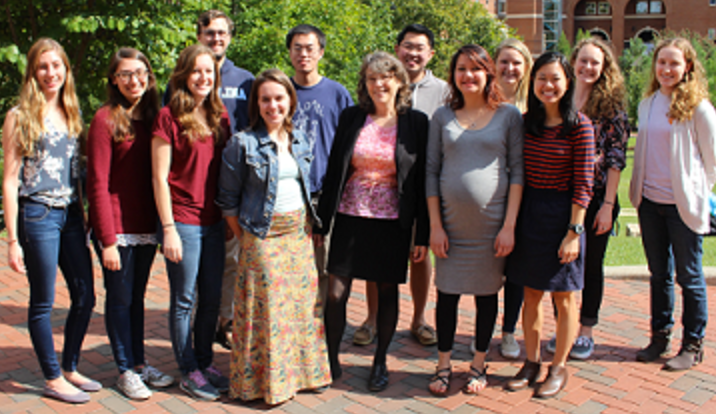Recent work in the lab of Victoria Bautch, PhD, co-director of the UNC McAllister Heart Institute, sheds light on how trafficking proteins produced by endothelial cells blunt signaling proteins that control vessel growth and patterning, processes that affect disease.


New research on blood vessel expansion from the lab of Victoria Bautch, PhD, recently appointed co-director of the UNC McAllister Institute, has been published in Nature Communications and featured in Bioscience Technology Online.
The Bautch Lab centers on the molecules and processes that control development and disease. Her lab is currently focused on understanding how blood vessels form and are patterned during development, and how these process are disturbed or co-opted during diseases such as cancer.
The recent study considered how a receptor for Vascular Endothelial Growth Factor-A (VEGF-A), called VEGFR1, negatively modulates blood vessel morphogenesis. Tight control of VEGF-A signalling is required for proper vessel growth, and the research showed that endothelial cells regulate the amount of VEGFR1 in blood vessels to affect this process. Since increased VEGF-A signalling is linked to disease, trafficking proteins like RAB27 involved in this regulation may serve as potential therapeutic targets.
“Understanding more about how VEGF regulation affects disease – both excess vessel formation in tumors and perhaps a lack of vessel formation also – is the next step,” says Dr. Bautch in Bioscience Technology Online. “For example, wound healing in diabetics is compromised by lack of angiogenesis.” Dr. Bautch wonders if drugs that regulate the enzymes that stabilize VEGFR1 might be an alternate and novel way to regulate blood vessel formation in humans.
Dr. Bautch is Beverly Long Chapin Distinguished Professor and Chair of Biology, and a member of the UNC Lineberger Comprehensive Cancer Center.